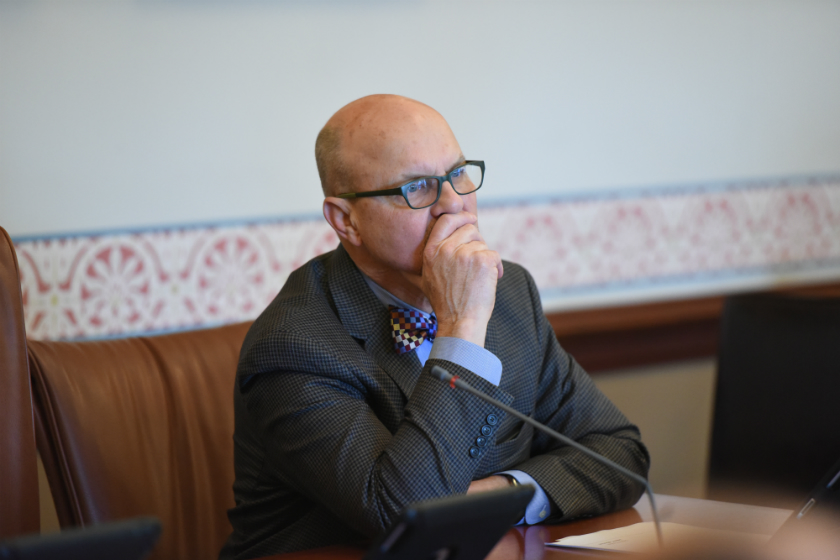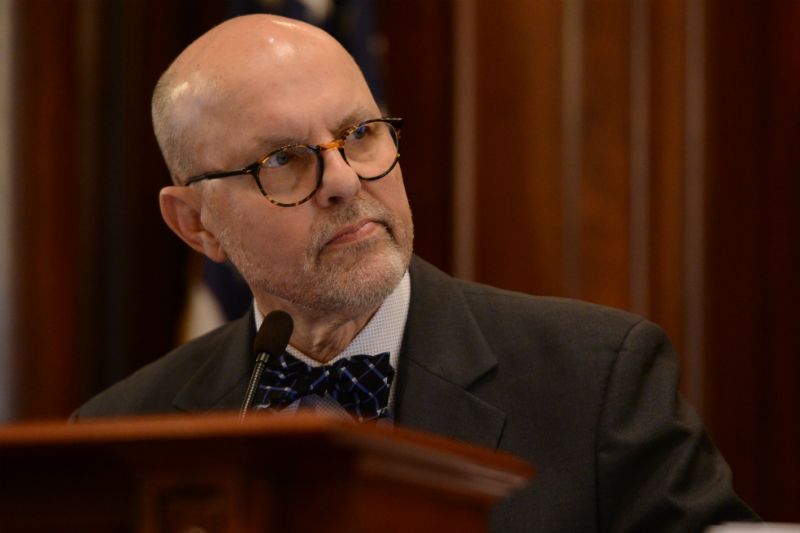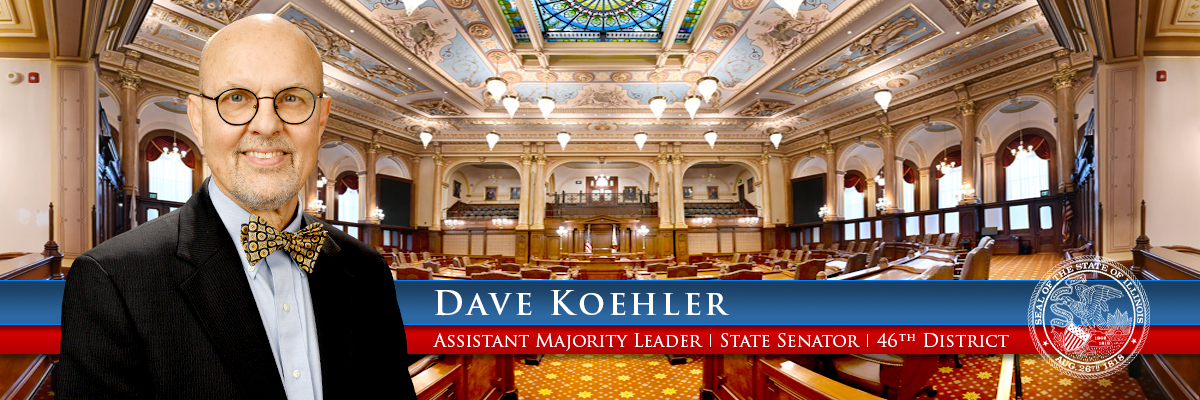- Details
- Category: Press Releases

CANTON – Texas-based energy generator Vistra announced today that they are closing several downstate Illinois coal-fired power plants, including the Duck Creek plant in Canton.
Assistant Majority Leader Dave Koehler (D-Peoria) represents Canton and issued the following statement:
“I am incredibly saddened by the announcement that Duck Creek will close. The hardships that the workers at this plant will endure cannot be understated. They are not statistics or lines on a balance sheet. They are human beings, and I stand committed to working with the governor’s administration in Springfield to bring much needed economic support to both their families and the rest of the Fulton County community.
“The fact is the current business market for coal-based energy is simply no longer sustainable. As we transition to an energy economy that focuses on limiting emissions, we must be proactive in helping those communities that this will adversely effect.”
The Duck Creek plant was opened in 1976 and employs around 60 people.
- Details
- Category: Press Releases

PEORIA – Legislation designed to clean up coal ash, the toxic byproduct of burning coal and power plants, and prevent local water sources from being polluted was signed into law today.
Assistant Majority Leader Dave Koehler (D-Peoria) was one of Senate Bill 9’s chief-cosponsors.
“Someone needs to be responsible for cleaning up the toxic waste around coal power plants, and it shouldn’t be local taxpayers,” Koehler said. “I commend the advocates who made this bill happen and the governor for making this a priority.”
A report issued by environmental groups in late 2018 found that the amount of coal ash in groundwater around the E.D. Edwards Coal Plant south of Peoria was 18 times the U.S. Environmental Protection Agency’s drinking water standard.
The Peoria area is home to three coal plants total: E.D. Edwards in Bartonville, Powerton in Pekin and Duck Creek near Canton.
- Details
- Category: Press Releases

PEORIA – Existing protections under Scott’s Law, the state law requiring motorists to move over for emergency vehicles pulled over on the side of the road, were strengthened under legislation signed into law today.
Assistant Majority Leader Dave Koehler (D-Peoria) was a cosponsor of the measure and says that, with the prevalence of distracted driving, the measure couldn’t have come sooner.
“First responders have enough on their plates without having to worry about getting hit by cars on the interstate,” Koehler said. “This measure is designed to save lives, and I’m glad to stand with our first responders and support it.”
Senate Bill 1862 strengthens the existing provisions of Scott’s Law by:
- Increasing the minimum fine for a Scott’s Law violation without damage or injury from $100 to $500
- Making a Scott’s Law violation that results in damage to a vehicle a Class A misdemeanor
- Making a violation that results in injury or death a Class 4 felony
- Adding a Scott’s Law violation to the list of aggravating factors that may be used in sentencing for reckless homicide
- Increasing the penalty for a reckless homicide conviction based on a violation of Scott’s Law that results in the death of a firefighter or emergency medical services personnel to a Class 2 felony from a Class 3 felony
- Applying Scott’s Law to the requirements for approaching any disabled vehicle
Scott's Law is named after Lieutenant Scott Gillen of the Chicago Fire Department, who was killed by a drunk driver while assisting at a crash on the highway in Chicago.
More Articles …
- Bartonville, Peoria libraries receive grants to help at-risk youth
- Route 24 expansion improvements, Murray Baker bridge rehab included in capital infrastructure plan
- Koehler: Sheriff’s Deputy will forever be remembered
- Koehler passes measure to protect people with food allergies eating at restaurants
Page 64 of 101


